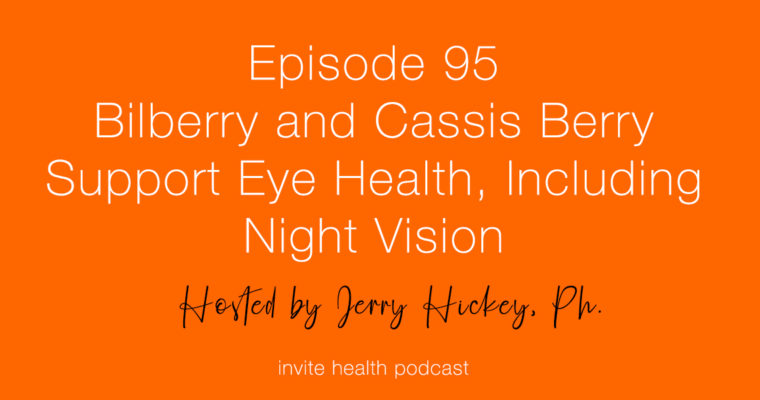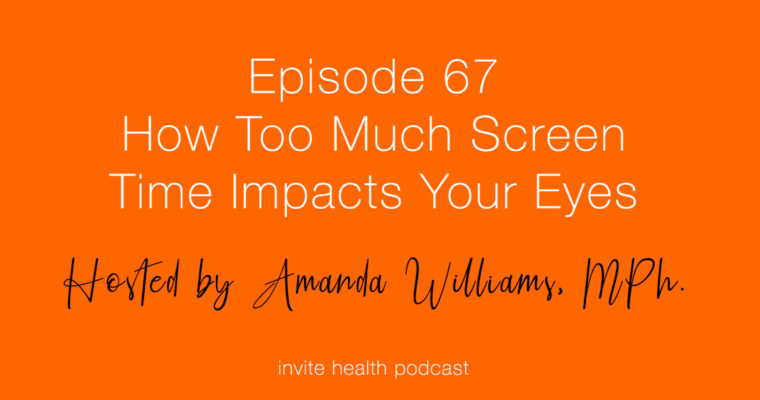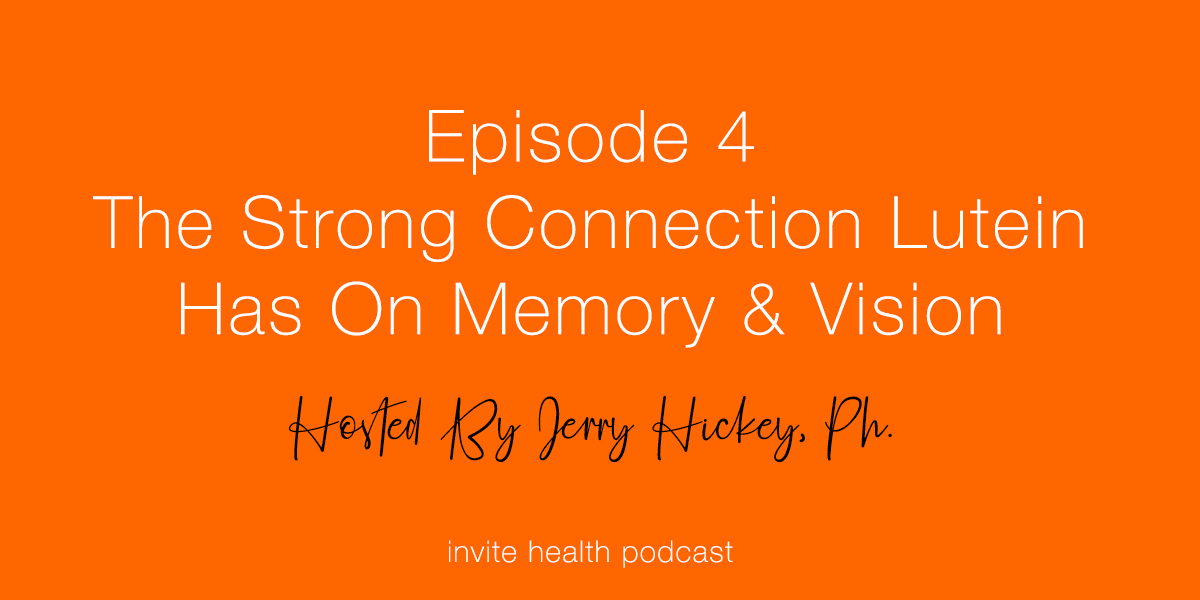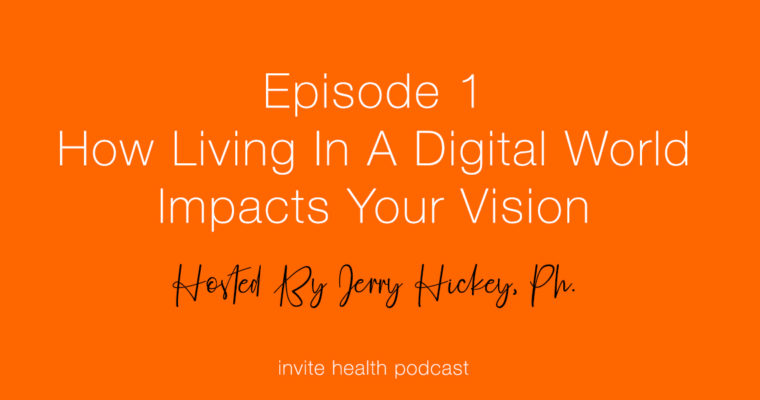Invite Health Podcast, Episode hosted by Jerry Hickey. Ph
Subscribe Today!
Today we are going to discuss the strong connections between eye health and memory. So, I am going to try to inspire you to eat right – eat your spinach! Spinach, like many other green, leafy vegetables supplies a wide variety of vitamin-like nutrients, like invigorate your eye health and memory functions! It’s a little, yellow-orange pigment called Lutein!
What is Lutein?
Lutein is a member of the carotnoid family. Caratinoids are a group of pigments in plants that are extremely important for our health. Sources of lutein include kale, spinach, collard greens and romaine lettuce.
Lutein converts to an important pigment called Zeaxanthin that is very important for vision. In parts of the eyes, they are the only carinoids that are accepted. Zeaxanthin is also found in the same vegetables as lutein but is found in many orange-colored foods like tangeries, oranges and orange peppers.
Lutein and Zeaxanthin are very important protectors of the eyes and the brain, due to their antioxidant properties. This helps protect them from inflammation.
Impact of Technology On Sleep
Now, in today’s digital world it seems like you can not escape your screens! Screens use technology that shows a brighter, clear image like LED lights. These lights emit a great amount of blue light. This blue light can impact the amount of nutrients in your eyes, specifically Lutein and Zeaxanthin. This can impact your brain health and impacts your body’s release of melatonin. Melatonin is the nighttime hormone that allows your body to know when it is time to go to sleep.
A recent study in a group of young health people, shows that screen usage disrupts both melatonin release, which leads to a decrease in quality and quantity of sleep.
Link Between Lutein and Brain Health, Specifically Memory
Lutein, in many studies, has been shown to provide benefits for the function of your brain, for attention span and focus, for obtaining information and your mood and memory.
A young, healthy brain creates 700 new, healthy memory cells everyday. Which may not sound like much, but by the time you are 50 years old, you’ve replaced all of the original memory cells that you were born with and developed in your youth.
In a study on infants, Lutein made up 55% of the total carotinoid content of their brain, which is needed for the growth of brain tissue and to develop nerve tissue. More on that when we come back tomorrow!
Thank you for tuning in to the Invite Health Podcast. You can find all of our episodes for free wherever you listen to podcasts or by visiting www.invitehealth.com/podcasts. Make sure you subscribe and leave us a review! Follow us on Facebook, Twitter and Instagram at Invite Health today. We’ll see you next time on another episode of the invite health podcast.
Key Topics:
- Important nutrients that impact vision health
- The best foods for essential vision health nutrients
- Impact of blue light on your overall health
- Low levels of Lutein impact your brain and sleep







